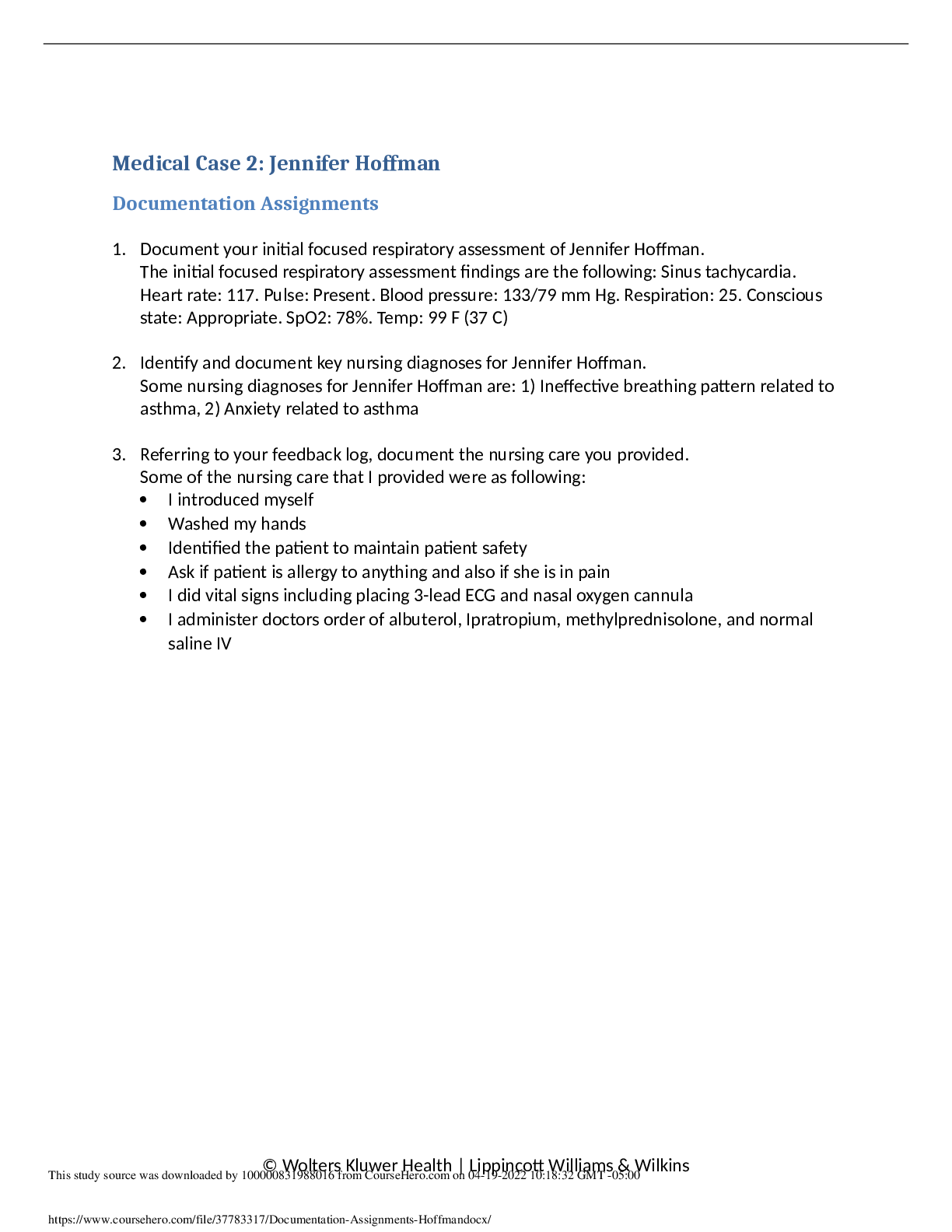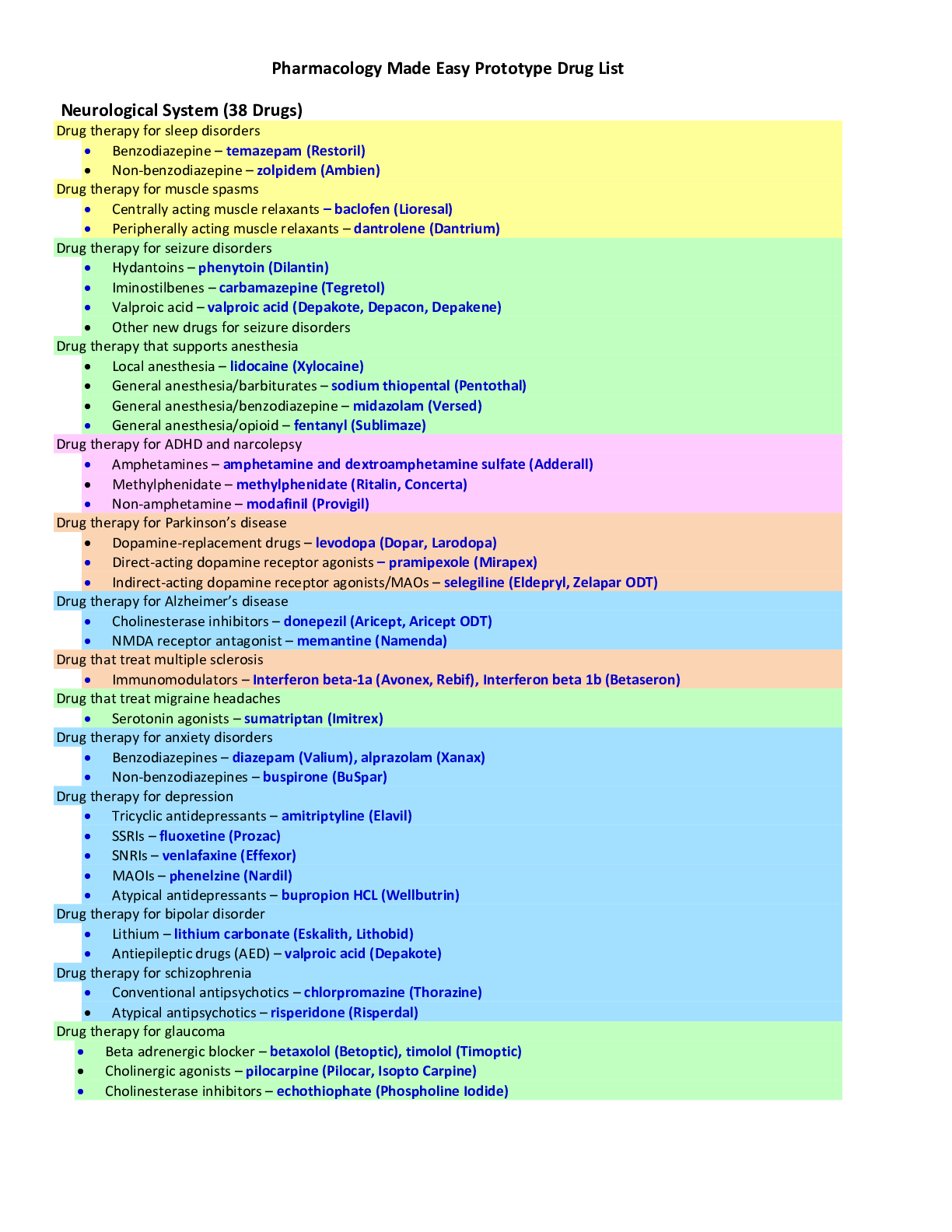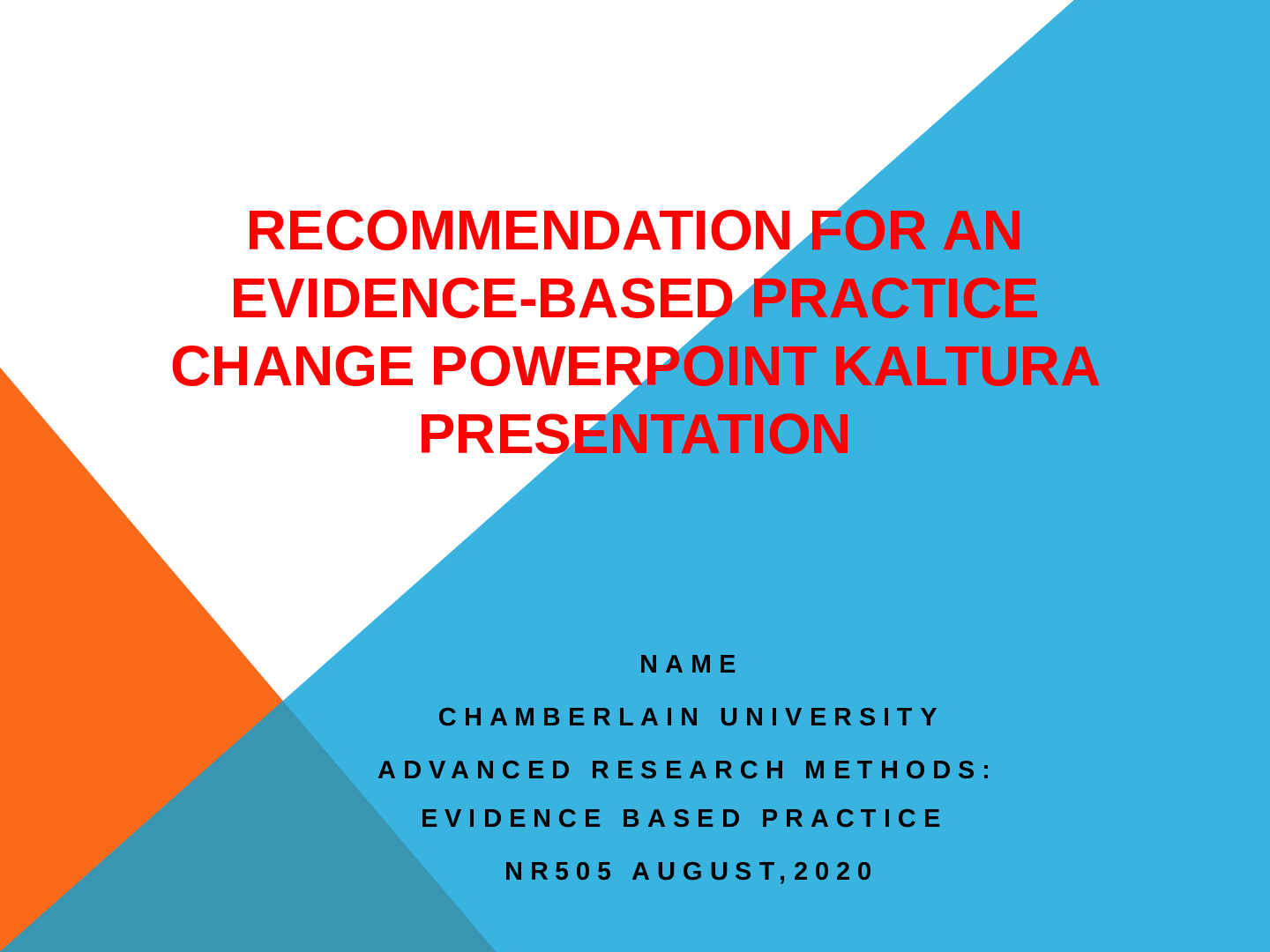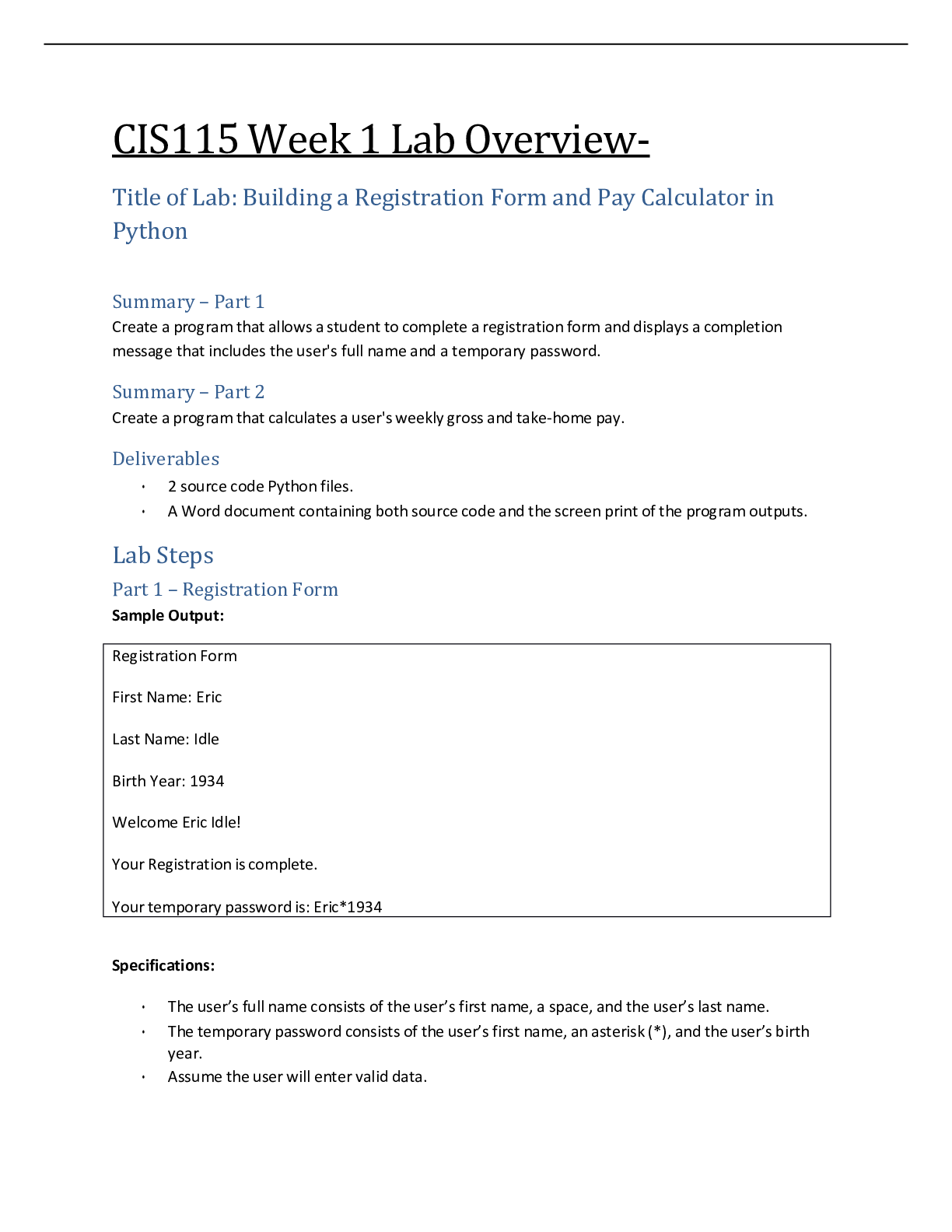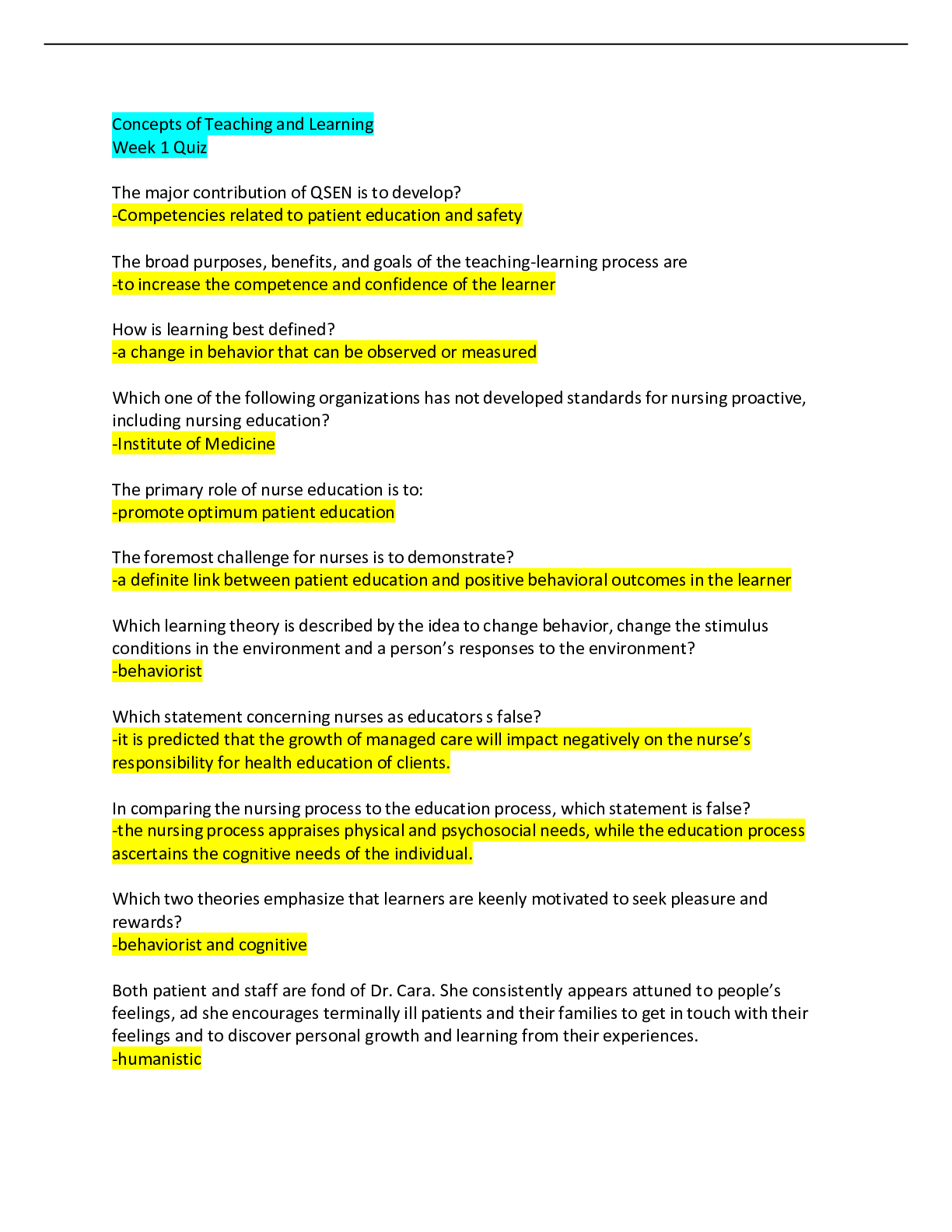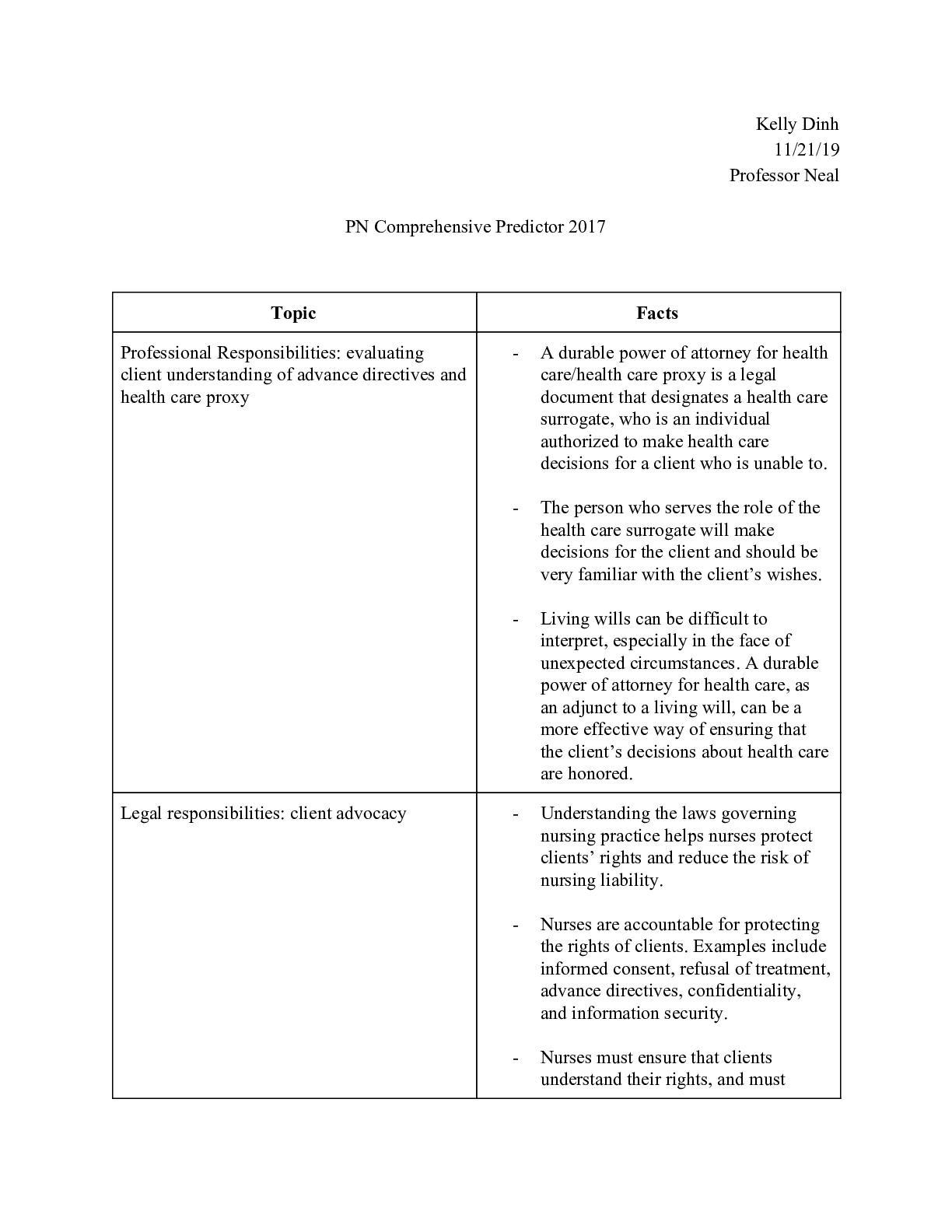*NURSING > Summary > HLT 306V WEEK 4 ASSIGNMENT 2, OLDER ADULTS PATIENT EDUCATION ISSUES : Grand Canyon (All)
HLT 306V WEEK 4 ASSIGNMENT 2, OLDER ADULTS PATIENT EDUCATION ISSUES : Grand Canyon
Document Content and Description Below
Running head: OLDER ADULTS PATIENT EDUCATION ISSUES 1 Older Adults Patient Education Issues Essay and Interview Mimi Nani Grand Canyon University HLT-306V March 17, 2019. This study source... was downloaded by 100000817113117 from CourseHero.com on 09-14-2021 07:29:02 GMT -05:00 https://www.coursehero.com/file/95321856/HLT-306V-Older-Adults-Patient-Education-Issues-Essay-and-Interviewdocx/ This study resource was shared via CourseHero.com OLDER ADULTS PATIENT EDUCATION ISSUES ESSAY AND INTERVIEW 2 Older Adults Patient Education Issues in healthcare Good healthcare that includes more preventive than curative approach has led to much of the population in America to live longer. Most of the population is made up of older adults who are also referred to as seniors or baby boomers (people born after World War II). 14.5% of total America’s population was 65 years and older and there is a projection of them reaching 23.5% by 2060 (Colby & Ortman, 2015). This has led to healthcare providers, researchers as well as policymakers to shift focus from extending the lifespan efforts to how to improve the quality of life while aging. However, there has not been a society’s view change on being old and many current beliefs or views about growing old are based on invalid information due to advancement in science. The lack of change in society’s views has led to many myths like older adults live in the nursing home while in reality, they are still active and productive members of society. Society belives that older adults cannot learn new skills while in reality they can it will just take longer. Older adults are associated with Alzheimer and forgetfulness while not all of them do and have sharper minds. Since aging cannot be stopped or reversed, the best realistic way to help older adults in society is to improve their quality of life, functioning, and health. In patient education assessment is the initial step, the healthcare professional evaluate the patient on their knowledge and skills which includes the ability to learn, reading level, ability to understand resources and language used in the education process. This assessment enables the professional to develop an individualized plan for the patient. In older adults, the approach might be different for it to meet their learning and understanding needs which could include cognitive or disabilities, cultural or social factors or the need to include a caregiver in the education process. The professional should This study source was downloaded by 100000817113117 from CourseHero.com on 09-14-2021 07:29:02 GMT -05:00 https://www.coursehero.com/file/95321856/HLT-306V-Older-Adults-Patient-Education-Issues-Essay-and-Interviewdocx/ This study resource was shared via CourseHero.com DEVELOPING A SHARED VISION 3 also evaluate personal biases that may hinder their communication to the older adult for example ageism, stereotyping, generational differences, cultural and religious differences. Interview Did a patient education representative give you instructions on how to care for yourself after your illness or operation? Yes, they did but initially some healthcare professionals assumed that I could not take care of myself or needed someone to be present to translate or explain to me. The patient said they had some incidents in which the professional taking care of them assumed they did not understand or hear what they were saying and would suggest for another person present. This can be classified under the myths that many professionals have on older adults, that they are far gone and understanding is an issue while the patient also stated issues of shouting as if they had hearing problems. Upon request, the physicians that attended to them was different from other professionals since they took time to know of any needs that should be accommodated for before the education and explained what happened, the name of the condition and the way forward with also printed education materials. Did a health care professional, pharmacist, nurse, doctor, or elder counselor advise you on your medication, diet, or exercise? Yes, I had a doctor who explained what caused the blood pressure and led to a mild stroke. They were different specialist which dealt with every aspect of the illness, for example, a speech specialist, stroke specialist, and nutritionist. The nutritionist advised of foods and add-ons I should avoid to maintain my blood pressure and was assigned a physiotherapist who would perform the exercise with me and later showed me exercise that I would perform. For the patient to have the best health outcome, it is essential to be advised on areas that would limit their This study source was downloaded by 100000817113117 from CourseHero.com on 09-14-2021 07:29:02 GMT -05:00 https://www.coursehero.com/file/95321856/HLT-306V-Older-Adults-Patient-Education-Issues-Essay-and-Interviewdocx/ This study resource was shared via CourseHero.com DEVELOPING A SHARED VISION 4 chances of readmission or remission and steps that would help them fully recover or ensure a better quality of life. Who assisted you at home after your illness or operation? The family was essential to my recovery process since they helped me in every step. Friends and church members provided emotional and spiritual support by their visit and prayers. The visit of a physiotherapist time to time also ensured that I kept up with the exercise routine on my road to recovery. In our culture family is important and them being close by and some living with me ensured there is someone always there to tend and enable me to comply with doctors advises. It is important for the healthcare professional to ensure that while educating, consideration is given to the caregivers who will provide help to the patient while they are at home, therefore, should be included in the education process. Do you know of any assistance services, i.e., food, transportation, medication, that would help you stay in your home as you get older? During my hospital visit, the professionals shared some materials on services that ware available to me, but they did not give into consideration the timing since I was still undergoing other stress like retiring thus losing my employers insurance in the coming months. On my follow-up visits when on road to recovery is when I understood since the professional explained of assisted services, I could get being a senior member of the community. These services to me were viewed as important since many older adults like me are unable to perform as they used before and do not have someone to take care of them as I do. During patient education, it is imperative for the professionals involved with an older adult patient to educate or inform them of services that can be provided to them like meals, transport, counseling, and education which might impact their living as well as compliance. Some things may seem simple to the This study source was downloaded by 100000817113117 from CourseHero.com on 09-14-2021 07:29:02 GMT -05:00 https://www.coursehero.com/file/95321856/HLT-306V-Older-Adults-Patient-Education-Issues-Essay-and-Interviewdocx/ This study resource was shared via CourseHero.com DEVELOPING A SHARED VISION 5 professional but to an older adult patient is hard and for them to be able to make it to appointments or eat healthily is essential to the care process. Conclusion To ensure collaboration between the healthcare professional and the patient especially older adult patient, it is important for the professional to treat the patient with respect, demonstrate tolerance and make sure not to reflect any biases in order to ensure effective communication and understanding (Falvo, 2004). Professional should consider factors that may hinder the older adult patient from complying in order to develop an effective plan for education and treatment. The role of family and caregivers should be evaluated since older adult patient might require help thus, they should be included in the education and treatment process. The professional should also ensure that the patient’s abilities are catered for when developing the treatment process since it is essential to their compliance. This study source was downloaded by 100000817113117 from CourseHero.com on 09-14-2021 07:29:02 GMT -05:00 https://www.coursehero.com/file/95321856/HLT-306V-Older-Adults-Patient-Education-Issues-Essay-and-Interviewdocx/ This study resource was shared via CourseHero.com [Show More]
Last updated: 1 year ago
Preview 1 out of 6 pages

Buy this document to get the full access instantly
Instant Download Access after purchase
Add to cartInstant download
We Accept:

Reviews( 0 )
$7.00
Document information
Connected school, study & course
About the document
Uploaded On
Sep 22, 2021
Number of pages
6
Written in
Additional information
This document has been written for:
Uploaded
Sep 22, 2021
Downloads
0
Views
72

